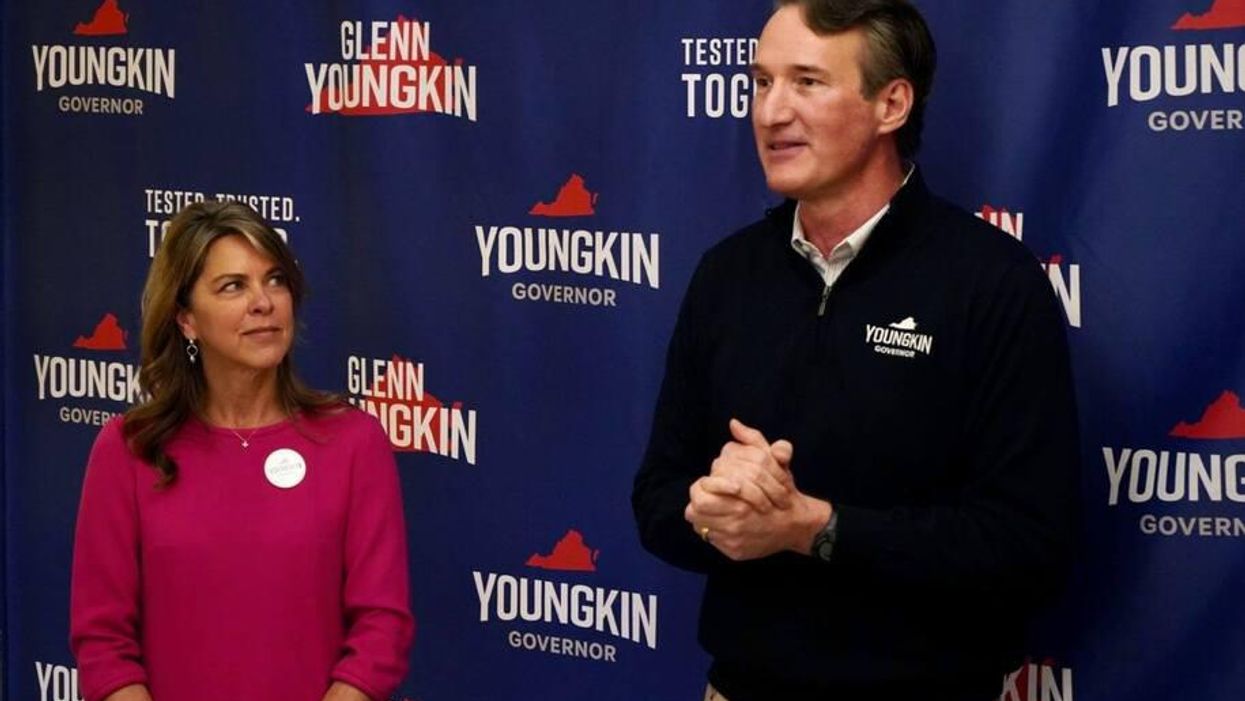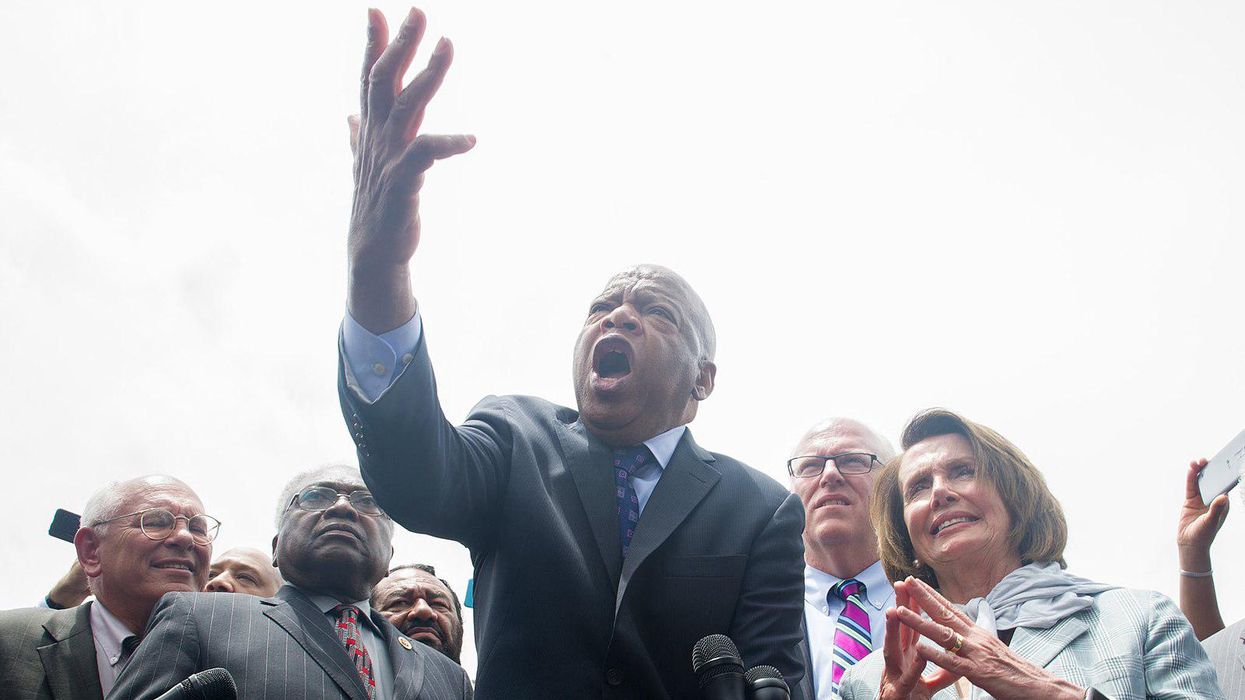Reprinted with permission from Roll Call
The White House issued a proclamation last week, of the sort that most presidents have issued about historical events that deserve commemorating, but that were missing, for the most part, during the Trump reign.
This one marked the 60th anniversary of the first Freedom Rides, on May 4, 1961, when traveling on a bus meant risking your life, if you were with an integrated group, sitting in a spot of your choice. Those southbound heroes were willing to face beatings and the unknown at the hands of fellow citizens intent on stopping progress by any means necessary. Angry and afraid, the violent white supremacist mobs refused to acknowledge the humanity of African Americans or the validity of any law that looked forward not back.
It's the reality — and not the myth of uncomplicated greatness the country has told the world and itself for far too long.
And it's not always pretty.
For that reason, many Republicans want to "cancel" it, to use a word today's conservatives have been misusing with reckless abandon. They'd like to erase the history and the essential lessons that reveal so much about how and why America is so divided and its systems — of health care, housing, education, and more — so inequitable in 2021.
Why? Because for all the chest-thumping toughness so many Americans brag about, apparently white students are too fragile to hear the truth, or see the pictures on prized postcards that treated lynchings as entertainment for the whole family, an indictment of more than a few rogue racists.
Black students, of course, subject to disproportionate school suspensions, stereotypical assumptions from teachers, and keen scrutiny by law enforcement on their way to and from, and sometimes in, the classroom, know all too well that the problems they face stretch back 400 years and more. But the laws being passed and pushed in states across the country — no surprise — don't have them in mind.
Alternate Reality
For those making and debating these rules, in states such as Idaho, Tennessee, Oklahoma, Texas, and Arkansas, creating an alternate reality, a version that resembles a Disneyfied diorama, is fine even if it is false, as long as it accommodates white feelings and gives in to white fears.
How will these laws be enforced? Government monitors? Would a fine be imposed if a teacher steps over some vague line? Well, yes, in Arizona, the penalty could be $5,000. If a curious student asks a question, will the teacher no longer be allowed to answer?
The late Rep. John Lewis, brave and persistent, who endured brutal beatings as a consequence of his civil rights activism —including his part in the Freedom Rides — would seem to be someone America's students could look up to. But I'm doubtful his march across the Edmund Pettus Bridge in 1965 would make it past the curriculum censors since his attackers were agents of the state, enforcing unjust laws that prevented African Americans from voting, from living a free life.
Can you imagine? Students might make a connection between those troopers and Derek Chauvin, a murderer in a uniform, and want to learn about the racist history of policing in America. Plus, calling that day "Bloody Sunday" just wouldn't do.
It's no coincidence that the defenders of a white-washed version of history are in many cases the same legislators rushing through laws that criminalize the protesters who are the spiritual sons and daughters of Lewis.
Do these arbiters of education think that if students don't learn about Jim Crow, they won't see anything shameful about "Jim Crow 2.0" laws that restrict voting rights and harken back to post-Reconstruction rules enacted to crush the progress of those who, once unshackled, achieved elective office and thrived?
It's clear from the twisted views of America's past held by many of the staunchest defenders of the anti-history movement that a more inclusive curriculum is overdue, and they should sign up for a makeup class.
Get the dunce cap ready for Martha Huckabay, president of the Women's Republican Club of New Orleans, who defended Louisiana GOP state Rep. Ray Garofalo's words on teaching about the "good" parts of enslaving men, women, and children and offered choice thoughts of her own. Huckabay opined that slavery resulted in "hard working ethics" and that "many of the slaves loved their masters, and their masters loved them, and took very good care of them, and their families." Was she talking about the torture, the rape, or the selling of children away from moms and dads?
Tennessee Republican state Rep. Justin Lafferty somehow interpreted the three-fifths compromise in the original Constitution, which counted the enslaved as three-fifths of a human being, as a step toward ending slavery.
Colorado GOP state Rep. Ron Hanks said the three-fifths compromise "was not impugning anybody's humanity" — after he made a lynching joke. His Republican colleague, state Rep. Richard Holtorf, called another colleague the racist stereotype "Buckwheat," and insisted it had nothing — nothing — to do with race.
CNN contributor Rick Santorum has tried and failed miserably to explain his comments that "we birthed a nation from nothing. I mean, there was nothing here. I mean, yes we have Native Americans, but candidly there isn't much Native American culture in American culture." Why, when he was a senator from Pennsylvania, could Santorum not be bothered to stroll to the National Museum of the American Indian? Was he too lazy or just incurious, either way not an example for school kids of any age?
Senate Minority Leader Mitch McConnell has weighed in on the debate. He seems fine with teaching the words of America's founding documents — the Declaration of Independence, the Constitution. Does he want to stop there, leaving out how, when and why the country failed to live up to the lofty principles in those documents until forced to by true patriots? He has said the year 1619, when the first enslaved Africans arrived in colonial Virginia, means little to him. Considering his slave-owning ancestors benefited from trading and "owning" human beings and, presumably, passed the wealth on to family members, you'd think McConnell would be a little more "woke."
History Repeats
"The past is never dead. It's not even past," wrote William Faulkner. The depressing proof can be seen in the tiki-torch-carrying white supremacists in Charlottesville, Virginia., chanting, "Jews will not replace us!" You have to wonder if avowed neo-Nazi James Fields Jr., serving life in prison for the killing of Heather Heyer, would even be charged under new laws that give a pass and winking approval to drivers who mow down protesters blocking a roadway?
Just months ago, on January 6, violent, hate-filled mobs — cousins in crime to those who greeted the Freedom Riders — stormed the U.S. Capitol, attacking police with the same weapons of batons and bats, hoisting Confederate flags, erecting gallows, hunting for lawmakers and endangering democracy itself.
South Carolina, where Lewis was viciously attacked and left in a pool of blood at the Rock Hill stop of the original Freedom Rides, on Monday officially observed Confederate Memorial Day, honoring traitors who fought to split a nation over the issue of slavery.
This Monday.
How will the next generations do better if they are forbidden from learning the history they must not repeat?
Mary C. Curtis has worked at The New York Times, The Baltimore Sun, The Charlotte Observer, as national correspondent for Politics Daily, and is a senior facilitator with The OpEd Project. Follow her on Twitter @mcurtisnc3.













Trump Cabinet Nominee Withdraws Over (Sane) January 6 Comments